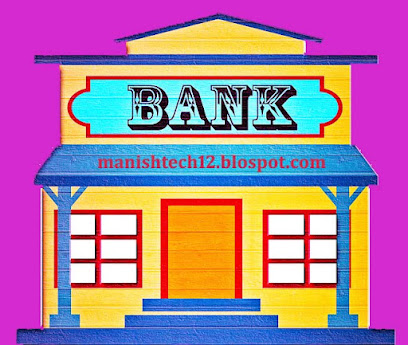What is Bank:-
A bank is a financial institution that deals with giving and receiving money. Although, the bank saves more money for people, which is called deposit money. At the same time, interest or interest is provided by the bank with this money.
Although the bank provides money to those people who need money, here those people have to pay interest on this money to the bank. We can therefore say that the bank acts as a source between the depositor (the collector) and the borrower (the borrower).
Type of bank:-
There are many types of banks. Different banks have been created for different purposes. Let us know all about the bank.
1. Private Industrial banks:-
This includes banks where the majority of equity is held by private shareholders. All banking rules and regulations determined by the RBI apply to all these private banking banks.
2. Rural Regional bank:-
These are also organized commercial banks. But these loans have been established to provide these loans to the weaker sections of the society like farmers, workers providing employment to labor and small business, etc.
They work at the regional level in different provinces of India. However, most of their branches are kept in select urban areas only. Another important work done by the RRB
Provide banking and financial services in rural and urban areas.
The government acts as payroll for MNREGA employees, which provides pensions to employees. Para-banking services such as debit cards, credit cards, and, locks.
3. Small financial bank:-
It is a special banking sector in the country. Also, its main purpose is to provide investment in such sections of the public that banks can provide. The clients of these small financial finance banks are small industries, small and medium medium-scale scale farmers, institutions in the informal sector, and small business units. They are licensed under Section 22 of the Banking Regulation Act, 1949, and are governed by the RBI Act, 1934, and FEMA.
4. Co-operative bank:-
Co-operative banks are registered under the Co-operatives Act, of 1912. operated by a select management committee. They work in a non-profit and mainly work for entrepreneurs, small businesses, industries, and those who are self-employed in urban areas. Although in rural areas, they mainly fund agricultural-based activities such as agriculture, livestock, and breeding.
5. Payment bank:-
Payments Bank is a new banking model in the Indian banking industry. It has been considered by the RBI and allows for limited deposit acceptance.
Although its value is currently limited to Rs. Up to 1 lakh only per customer. Where it provides services such as ATM Card, Credit Card, Net-Banking, and Mobile-Banking.
6. Commercial Bank:-
Commercial banks are banks that receive money from the public on a deposit basis and provide loans and improvements to their customers and also charge interest.
They promote small savings and promote trade and commerce development. In general, commercial banks offer money for a very short period. Although they provide funding for operations in organizations only. But in the meantime, commercial banks are also providing long-term financing to other organizations.
7. Foreign bank:-
The foreign bank is called the bank whose headquarters is in a remote country but operates as an independent business in India. These banks must comply with the laws of both countries, one from its headquarters and one from its headquarters.
For example, Citibank, Standard Chartered Bank, and HSBC are some of the largest foreign banks in India.
8. Exchange bank:-
The primary function of these banks is to buy and sell foreign currency and to accept foreign exchange loans.
What are the features of banks:-
1. Accepting the Deposit
The bank accepts money from individuals as a deposit that is usually paid on demand or after the expiration of a certain period (in the case of a fixed deposit). Provides security for customers on their deposits. Where it plays the role of treasurer of its clients.
2. It gives you loans
The bank provides you with loans that you can use for your needs.
3. Payment and Withdrawal
The bank provides easy payment and withdrawal services to its customers in the form of checks and drafts. In line with this, it also brings bank financing to the broadcast. This money is a kind of check, framework.
Conclusion:-
Friends, we hope you enjoyed our post. So give your feedback in the comments. if you have a question or suggestion. So you can ask through ideas. Thanks for staying with Manish Tech!



0 Comments